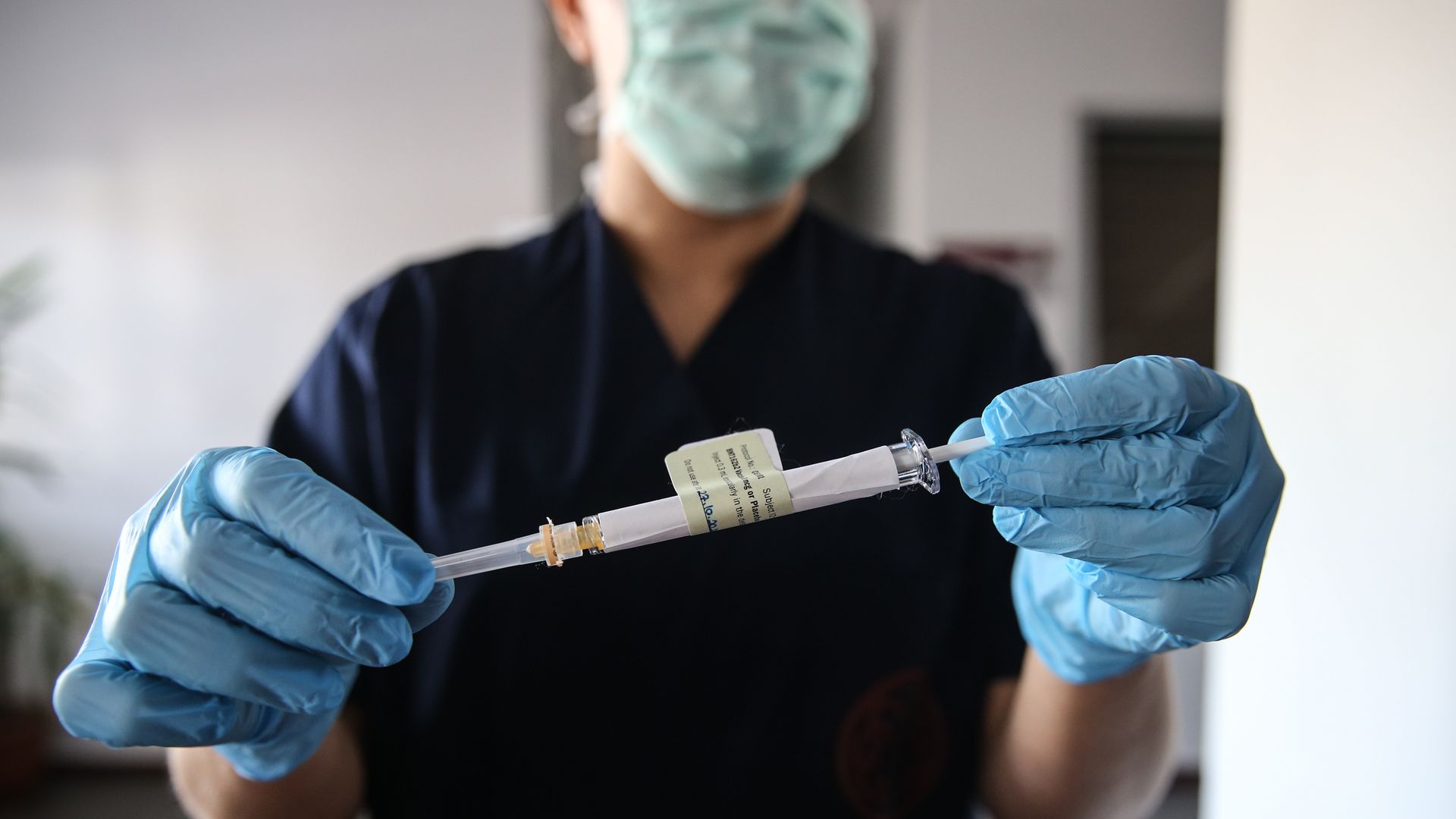Updated Dec 2, 2020 - Health
U.K. first nation to clear Pfizer coronavirus vaccine for mass rollout
Add Axios as your preferred source to
see more of our stories on Google.

A health care worker during the phase 3 COVID-19 vaccine trial by Pfizer and BioNTech in Ankara, Turkey, in October. Photo: Dogukan Keskinkilic/Anadolu Agency via Getty Images
